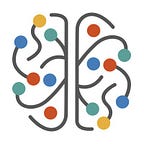AI and the NHS: Can It Work?
Welcome to Future Health, your weekly briefing on the impact of AI in Health, Sport and Life Science.
The NHS is the sixth largest employer in the world. NHS England processes over 1 million patients every 36 hours. Genomics England, working with the NHS, alone produces 10TB of data per day. The stats are impressive. In terms of the data standards of volume, velocity, variety, and veracity, the health service’s metrics ticks all the boxes for the application of AI/ML technologies. Are they ready to be applied yet?
Read on for..
- 🏥 AI in the NHS. How is it used and why is it not used more?
- 🧘♂️ Fujitsu’s computer vision software will judge the Gymnastics World Championship
- 📊 Oxford Researchers develop framework for predicting Parkinson’s.
Healthcare
AI and the NHS
A detailed, balanced article i) highlighting the current and potential use cases of AI in the health service and ii) outlining the barriers (both technical and political) in implementing the technology. As Dr Panos Constantinides of Warwick University says:
Achieving public trust is of vital importance for the success of AI in the NHS.
The Doctor Prescribes Video Games and Virtual Reality Rehab
Recent advancements in clinical-grade wearables, powerful machine learning algorithms, and a forward-looking FDA are giving rise to a new wave of software applications used to measure, diagnose, and treat disease. It’s clear that software is exerting a powerful force on our health. Robust and and ethical design is required to make ensure this force acts for good. Check out the Hippocratic Oath for Connected Medical Devices.
Products We Love
L’Oréal releases wearable UV exposure tracker with NFC and no battery
An estimated 86% of melanoma skin cancers in the UK (around 13,600 cases) every year are linked to too much exposure to sunlight and sunbed use. L’Oréal’s device aims to make it easy and commonplace to track such exposure — no battery is required and all data is sent to your phone.
CognitionX recently worked on private client research exploring personalisation and wearables in HealthTech. Contact us to discuss your bespoke research project. (research@cognitionx.io)
Research
Oxford researchers’ AI framework may predict Parkinson’s by identifying REM sleep disorder
The inter-departmental research from Oxford was based on sleep study records from 53 patients and an annotated open access database. A different method was taken by researchers in Zurich, who in a paper published in October, detailed an AI system that can diagnose Parkinson’s with data collected from a suite of smartphone-based tests.
Privacy
Google’s Past Data Use Could Impede Health Care Push
Incisive analysis from Tom Simonite in Wired this week covering the implications of Google’s step into healthcare through it’s sister Alphabet company DeepMind.
Sports Analytics
Fujitsu AI to judge gymnastics
The Fujitsu system captures gymnast’s moves through a field of 2 million infrared laser beams. The software analyses the precision of the moves with the help of data collected from past performances. The International Gymnastics Federation will introduce the system at the World Championships in October 2019 — will it cause a Premier League VAR style uproar…
Can it work? Is it a Good Thing? Hot takes welcome @cognition_x. We’ll feature some next week.
Wellness
‘Moneyball’ mastermind Billy Beane predicts health tech and AI will transform pro sports
Billy Beane argues that increased player healthcare data, wellness coaches and analysis tools are key to unlocking team performance. Tailored training regimes will both augment players individual traits and reduce injury rate.
The healthiest teams in NFL are the most successful. The correlation between health and success is remarkable.
